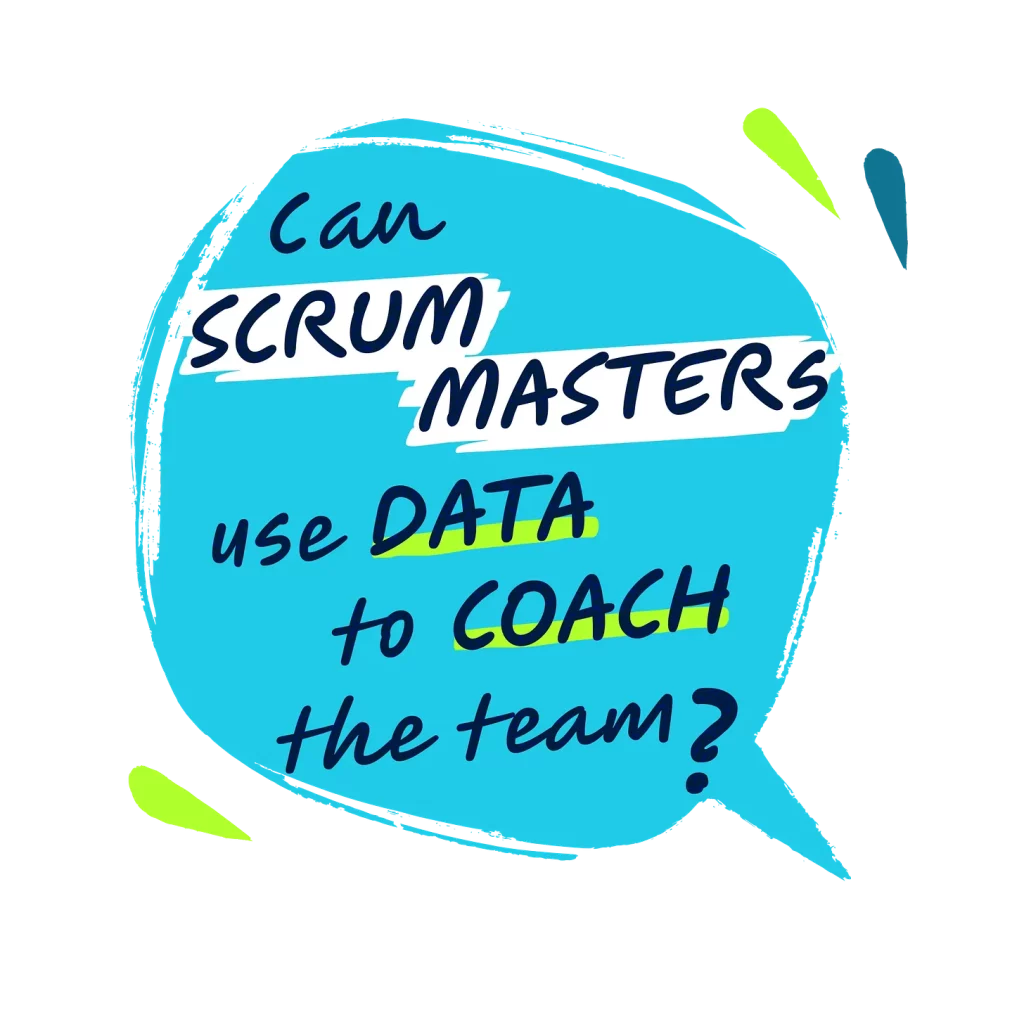A Scrum Master can leverage data effectively to help the team by asking the right questions sooner and by using valuable insights to drive continuous improvement.
A Scrum Master can harness the power of data to provide concrete evidence and facilitate informed decision-making within the team, driving continuous improvement and helping the team achieve its goals more effectively.
A Scrum Master can harness the power of data to provide concrete evidence and facilitate informed decision-making within the team, driving continuous improvement and helping the team achieve its goals more effectively.
1. Insights Into Effectiveness, Efficiency and Predictability:
Analysing metrics like Cycle Time, Work Item Age, Throughput or Work in Progress can help the team better understand how they can optimise their system for delivering value. While useful, we should be careful in using them in isolation or in other possible harmful ways, like comparing teams or individuals or using averages.
It is essential to dig deeper to understand the underlying causes or issues and to make sure that the used data is actionable.
2. Continuous Improvement:
Identifying bottlenecks and areas of inefficiency is a valuable step, but it’s only the beginning. The Scrum Master should facilitate discussions within the team to brainstorm and implement improvements collaboratively. Actionable data should guide these improvement efforts, but the team’s collective knowledge and creativity are equally important.
3. Risk Mitigation:
Anticipating and addressing potential risks using data is a proactive approach. However, it’s crucial not to focus solely on negative aspects. Data can also reveal opportunities and strengths within the team. The Scrum Master should help the team balance risk mitigation and leveraging their strengths.
4. Data-Driven Retrospectives:
Structuring retrospectives around data-driven insights is a powerful way to foster meaningful discussions. Inspecting a cycle time scatterplot, for example, can lead to implementable observations. Still, it’s essential to create an open and safe space where team members are willing to share their thoughts and concerns. The Scrum Master’s should ensure these retrospectives lead to actionable outcomes and improvements.
5. Team Self-Management:
Sharing data transparently empowers the team, but it also requires effective communication. The Scrum Master should help team members understand the significance of the data and how it relates to their work. Additionally, they should encourage team members to ask questions and seek clarification when needed.
6. Goal Alignment:
Aligning data analysis with the team’s goals and, if relevant, the product’s overall vision, is important. However, goals can evolve, so the Scrum Master should regularly assess whether the chosen metrics and data sources remain relevant. Flexibility in adapting data-driven approaches to changing objectives is critical.
While data plays a vital role in a Scrum Master’s coaching approach, it must be complemented by effective communication, collaboration, and a holistic view of the team’s performance and goals. The Scrum Master’s role is not just about crunching numbers but also guiding the team towards meaningful insights and improvements.


